When he set out to make a TV documentary about his grandfather, Tony Connelly could not have anticipated where it would take him. The journalist talks to Donal O'Donoghue about the reach of history, the importance of family, and being an older dad.
"Being an older father forces you to keep your sense of wonder," says Tony Connelly, RTÉ’s Europe correspondent, who, in his 59th year is dad to three boys: Mateo (16), Jack (6) and Felix (3).
Fatherhood and family, and wonder too, are also stitched into his new TV documentary, Tony Connelly: A Hidden History, a personal voyage around his grandfather, Michael Connelly, a Catholic from County Galway who served in the RIC and later the RUC. Drawing on archives, witness accounts and the personal testimonies of his father and his aunt, the broadcaster builds a portrait of a family man as he navigated a complex time in Irish history in the wake of the 1916 Rising and through the War of Independence.
Connelly, more used to investigating the lives of others, found, in his grandfather’s life, stories that help explain the often-painful birth of a nation but also the overwhelming primacy of family and the true meaning of home.
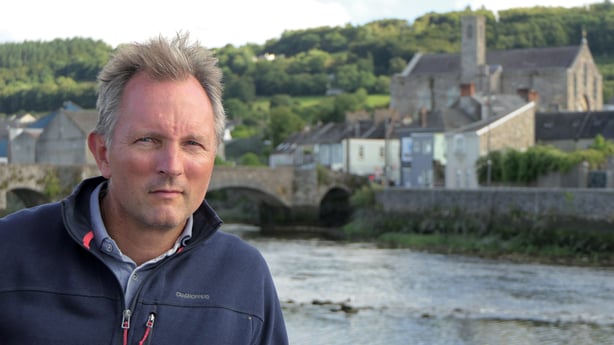
Tony Connelly was at home in Brussels, where he lives with his wife, Rikke, and their two sons, when we spoke last week. Felix was off school ("I think it’s one of those pedagogical days for the teachers or maybe it’s a one-day strike, you never know!") while his wife, a fellow journalist, briefly appears in the backdrop, as he detailed his grandfather’s story, and in a way, his own story too.
"My grandfather was not talked about in any detail at home and he died in 1964, nine months before I was born, so he just wasn’t present in my life," he says. "According to my Auntie Mary, he didn’t talk about the War of Independence which she believed was to protect his kids. He had to walk a fine line, targeted by the IRA as a spy and later a Southern Catholic working as a RUC man in Larne. The documentary gave me a new sense of my father’s family: the whole dislocation and upheaval caused by war and partition."
I imagine this history too left its imprint, conscious or otherwise, on Tony Connelly, just a child when his family moved to Derry from Coleraine in late 1971. "I was very excited because as a six-year-old the idea of soldiers and explosions was thrilling. Then a few months after we arrived Bloody Sunday (January 30, 1972) happened. In the days beforehand there was a foreboding atmosphere in the city and my father took the family across the border to Donegal the day of the march. I remember coming home that evening and hearing the news on the car radio: one dead, two dead, by the time we got to Derry it was four and the numbers kept rising.
"At that age, you internalise it and make it part of your normal experience but insofar as it shaped me I suppose I inherited the politics and perspective of my parents: they were nationalists but not republicans, very much SDLP and very opposed to the IRA."
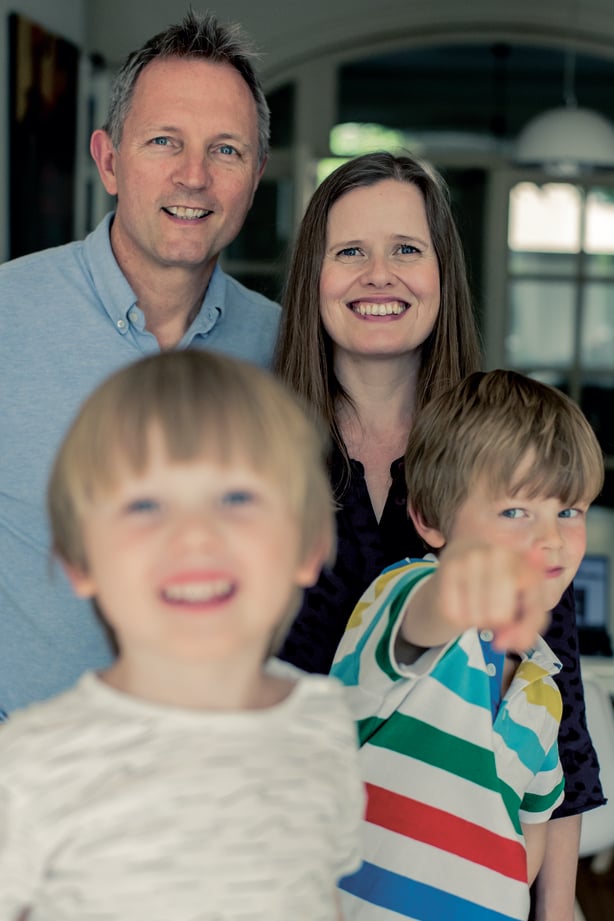
Tim Connelly worked for the Inland Revenue. "At one point my father was a target because the IRA issued a death threat against all senior civil servants. The police came to our house to give a security clearance for outside lights and floor-length heavy curtains. My father’s office, the Tax Office, was blown up three times by the IRA so he had to tread a fine line, but it never dented his nationalism which was very strong.
"Later I remember going to watch the riots during the Hunger Strikes but that was all just part of the quotidian backdrop: the violence, the checkpoints, police and army and bombs going off. The industrialist, Jeffery Agate, was shot dead by the IRA just around the corner from where we lived on Culmore Road. That was the leafy part of Derry. I imagine if I grew up on the Bogside or the Creggan I might have a different outlook."
If his alma mater, the prestigious St Columb’s College (alumni include Nobel Laureates Seamus Heaney and John Hume), could be a crucible for passionate political debate, Tony Connelly always knew where he was heading.
"I always wanted to be a journalist," he says, going on to study at The London School of Journalism before his first job as a cub reporter with The Oxford Courier where his inherent shyness was knocked out of him. He wrote for the Derry Journal, Irish Independent and Evening Press among others, before joining RTÉ in 1994 where he was appointed Europe correspondent in 2001 and Europe Editor in 2011.
"If RTÉ are happy I’m happy," he says of his lengthy posting. "I suppose it’s also about the knowledge you accrue down the years and the more you accrue the more valuable you become because of the complex nature of the European Union."
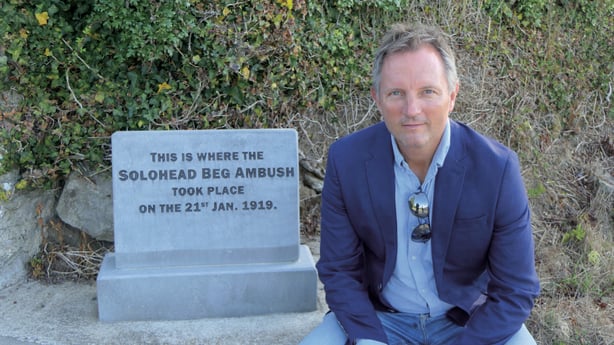
He met his wife, Rikke Albrechtsen, who works for the Danish political website, Altinget.dk, through the job. "Rikke (Danish) and I are the classic Brussels media ex-pats," says Connelly. "She wouldn’t find a fulfilling career in Dublin, and I wouldn’t find one in Copenhagen, so Brussels is where it’s at for us. Of course, it can be hard because the work schedule can be hectic. I suppose that was the one virtue of the pandemic. Felix was born in September 2019, so we got to spend a lot of time with him and Jack. Now it’s always a bit of a balancing act but when I’m home, I’m home."
And then there’s his eldest son, Mateo, who lives in Rome with his mother. "Mateo is coming to Brussels this weekend and I'll go to Rome the following weekend for his 16th birthday. Jack and Felix just worship him. He's like this Italian God who turns up every now and again."
What’s it like at 58 to have a 3-year-old? "Rikke wanted a second child because we are both ex-pats and it’s not easy for children of ex-pats to grow up in a country where neither parent has any real roots. That idea of having a sibling to share that experience is a very powerful one. That was Rikke’s rationale, and it made sense to me.
"Being a new dad in your fifties is very challenging because you have less energy and you’re more inclined to know what you want and what you’re not prepared to put up with at that age. That’s not a great starting point because you must let kids be themselves. But being an older father forces you to keep your sense of wonder, to be amazed at what your kids do. There’s so much joy in that because when you get to your late fifties those banks start to get depleted, so yes it forces you to stay open to wonder and amazement and having fun with them."
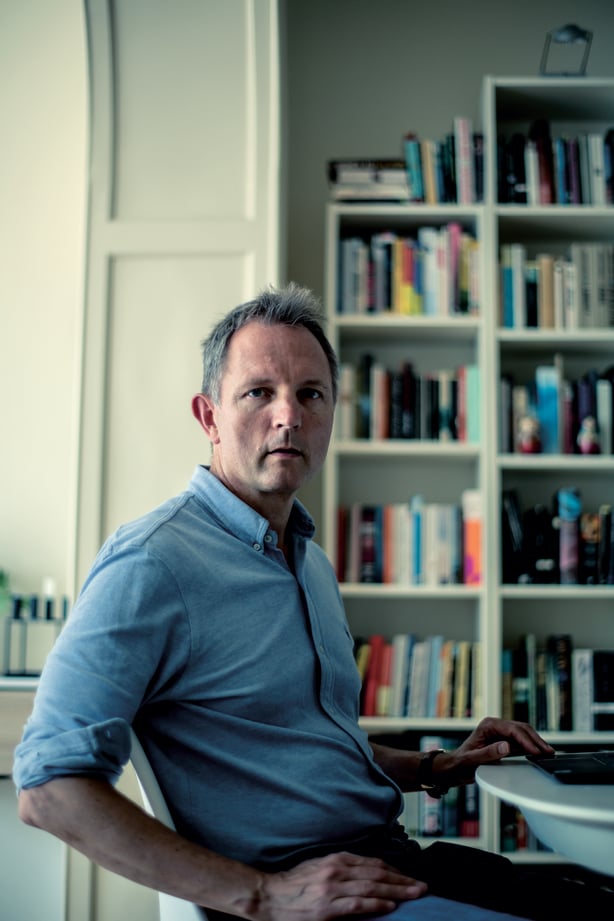
Connelly recalls that his own mother, Nance, used to play the piano when she was pregnant with him. Unsurprising as music was big in the Connelly home and history (in the documentary, his grandfather, Michael, is remembered as a fine ballad singer) and Tony, a talented singer and guitarist, continues this tradition.
In the late 1980s, he and his long-time friend, the immunologist Dr Luke O’Neill (they met on the building sites of London and were Best Men at their respective weddings) busked together in a band that helped keep bread on the table and porter on the counter. He still plays in a band – a quartet of ex-pats – and strums his children to sleep at night with songs from the long-ago days, the music of his childhood. "I would play Blackbird to Jack, and Morningtown Ride by The Seekers to Felix, a song that my mother used to sing to me when I was a kid."
Nance Connelly died in 2019, while Connelly’s father, Tim, 96 this July, is still going strong, a key part of the RTÉ documentary, where he is interviewed by his son. "When the cameras were rolling, Dad was so himself: not performing in any way, and while he says that he sometimes found his dad remote and stern, you could also see the affection he had for him."
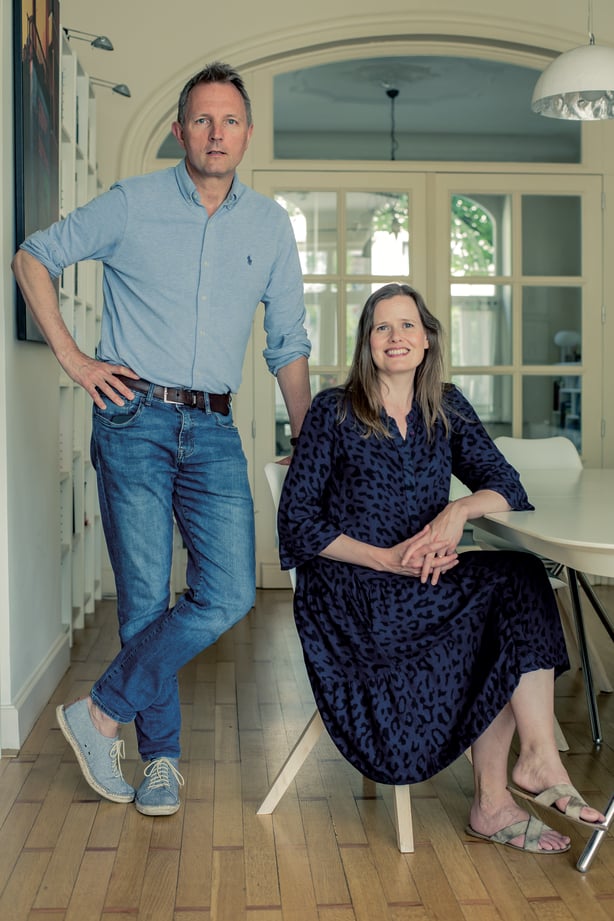
This sense of history made flesh percolates through the narrative. "There’s a photograph in there of my grandfather and grandmother with their six children, taken in 1928 or so because my father is still a toddler. I can see in it my grandfather's sense of pride, in his RUC uniform, that he had survived the war, the move to England and then Northern Ireland, his children all alive and well. I also now look at my father's family with a new sense of respect and admiration."
Tony Connelly has written two books drawing on his European experience, both in a way offering different sides of his personality. Don’t Mention the Wars (2009) was an entertaining take on European stereotypes while Brexit & Ireland (2017), a weightier tome, was lauded for rendering a complex issue accessible. If there is to be a third book it would be most likely built from the bones of the new TV documentary, pulling in his paternal aunts and uncles and how their nomadic lives too were shaped by the politics of the times.
"My uncle Jack was a tail gunner with the RAF in World War II and flew sixty missions over Europe. Yet when he came back to Larne after the war, he couldn't get a job because he was Catholic. My Uncle Mick had to go to Nigeria to get work and my Auntie Mary had to move to Toronto because her husband was Protestant and his family disinherited him. It was like another wave of dislocation following on from my grandfather."
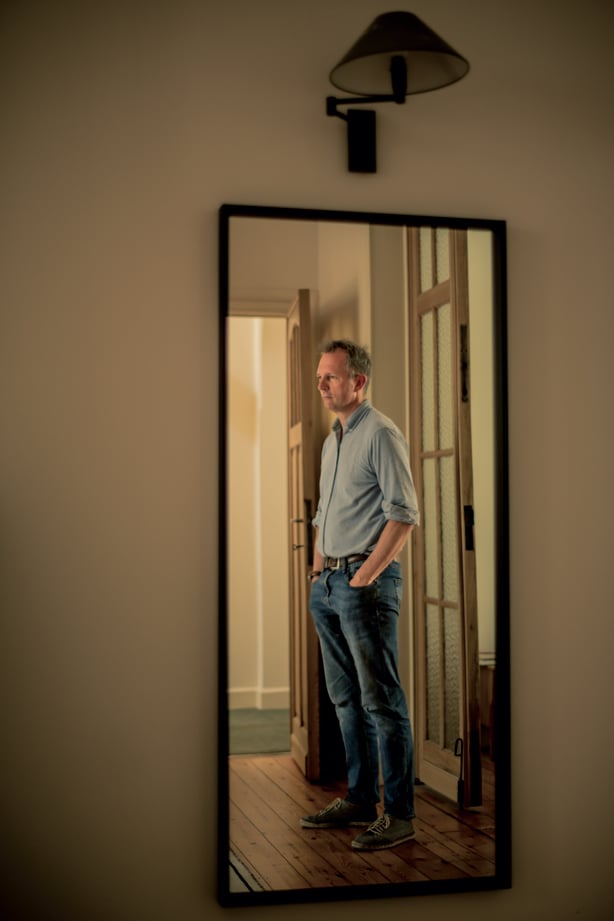
And yet there’s ever the constant of family and belonging. When asked where he regarded as home, Michael Connelly was unequivocal: Kilconnell, East Galway. As for his grandson, Tony, he too is absolute. "When you ask expats in Brussels where is home it usually means where do you go for Christmas because everyone clears out of the city then," he says with a laugh. "I alternate between Derry and Copenhagen every year. But I'd still regard Derry as home absolutely."
His father and sister, Maeve, still live in the old town and he occasionally returns to St Columb’s to deliver a talk to the students and has spoken to the Derry Chamber of Commerce about Brexit (surely his Mastermind subject).
"I like to keep that Derry link strong," he says, and in making this TV documentary, it has strengthened his understanding and appreciation of home and family and the ties that bind.



